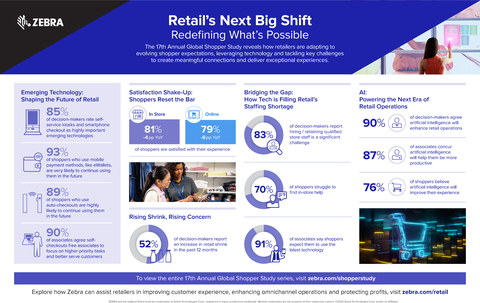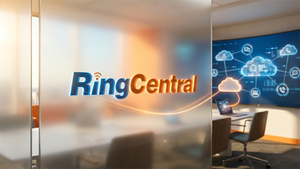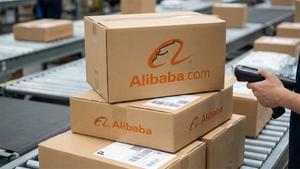Lack of associate assistance, self-checkout lanes, and shelf inventory among rising shopper concerns as satisfaction dips
Zebra Technologies Corporation (NASDAQ: ZBRA), a leading digital solution provider enabling businesses to intelligently connect data, assets, and people, today announced the findings of its 17th Annual Global Shopper Study. The data shows shoppers aren’t the only ones who are worried about the impact of theft and crime on the in-store experience. Eight in 10 retail associates are concerned about the lack of technology deployed to spot safety threats or criminal activity.
This press release features multimedia. View the full release here: https://www.businesswire.com/news/home/20241113425132/en/

Zebra Technologies' 17th Annual Global Shopper Study reveals how retailers are adapting to evolving shopper expectations, leveraging technology and tackling key challenges to create meaningful connections and deliver exceptional experiences. (Graphic: Zebra)
With most retailers (78%) under high pressure to minimize theft and loss, they are now investing in technology tools that can help frontline workers and those watching operations from behind the scenes. Artificial intelligence (AI) technologies are currently viewed as the most helpful with loss prevention, closely followed by cameras, sensors, and RFID. While only 38% of retailers currently use AI-based prescriptive analytics for loss prevention, 50% say they plan to use it in the next 1-3 years for this purpose. Over four in 10 retailers say they also plan to use self-checkout cameras and sensors (45%), computer vision (46%), and RFID tags and readers (42%) within the next three years, specifically for loss prevention.
This should come as a relief to shoppers, as 78% say it’s annoying when products are locked up or secured within cases. Adding to that frustration is that it’s hard to find an associate while shopping in stores these days, according to 70% of consumers.
One in five shoppers who left a store without getting what they needed say it’s because a retail associate wasn’t available to help, an increase over the past two years.
Other Issues Contributing to Associate Frustration, Decline in Shopper Satisfaction
Although consumers are still generally satisfied with their shopping experience and global consumer spending is holding steady, fewer shoppers overall are satisfied with their shopping experiences this year. In 2023, 85% were satisfied with both the in-store and online experiences. This year, only 81% are satisfied with the in-store experience and 79% with online shopping.
Shoppers expect retailers to offer easy click-and-collect and returns options, yet retailers and associates admit challenges with both. Most retailers also say it’s a struggle to confirm current inventory and pricing. Plus, with more shoppers returning to stores, lingering labor shortages and increasing loss incidents are having a greater impact on service levels. For example:
- 78% of shoppers say self-checkout options improve their shopping experience, yet 68% of shoppers say self-checkout (SCO) lanes are lacking, with some reporting they have left a store without making a purchase because there were no SCO or contactless payment options.
- 71% of shoppers are concerned about the lack of help associates can offer, while 82% of associates say it’s even difficult for them to find help or ask for timely support when needed.
Nearly 90% of retail associates believe they can provide a better customer experience when they have mobile technology tools to help simplify real-time communication and prioritize tasks as well as check prices and inventory. Most retailers agree technology enables associates to do their jobs better, and as a result, 75% of retailers say they plan to increase their technology investments in 2025.
“Many retailers are laying the groundwork to build a modern store experience,” said Matt Guiste, Global Retail Technology Strategist, Zebra Technologies. “They are investing in mobile and intelligent automation technologies to help inform operational decisions and enable associates to do the things that keep shoppers happy.”
Along with enhancing the customer experience, the study shows retailers’ top priorities include improving mobile workforce efficiency and productivity along with inventory management. More than one-third of them (39%) believe that GenAI will have an extremely significant impact on inventory management and demand forecasting. They will also be automating product locating and item-level RFID (46%), video monitoring (45%), and stock-out alerts (45%) to give associates and shoppers real-time inventory visibility, which is a leading profitability driver.
How Retailers Can Recover from the Year-Over-Year Decline in Shopper Satisfaction
Retailers can exceed shopper expectations, drive profitability and empower engaged associates if they:
- Get to know their customers. Three-quarters (75%) of shoppers are more willing to try and buy items when retailers know their personal preferences and associates make recommendations.
- Make it easier to find, pay for, and return items and find item-related information. Shoppers want associates to be available, and they are driven to retailers who can help them more easily find or return items.
- Keep shelves stocked. While fewer shoppers are complaining about out-of-stocks, this remains the top reason why over half (57%) of shoppers leave a store without items they want, and more associates (86%) are now struggling with real-time out-of-stock tracking.
- Protect shoppers without over-indexing on loss prevention. Most shoppers (71%) are concerned the stores at which they shop are experiencing high levels of theft and crime. Like associates, they worry threats can’t be spotted or stopped. However, 77% of shoppers are also concerned retailers may raise prices to cover the cost of increasing theft and crime.
- Avoid passing operational costs onto customers. Shoppers are more price sensitive than ever, with over three-quarters (+75%) worried inflation will drive up the prices of both everyday essentials and big-ticket items and force them to reduce overall spending.
- Give associates more technology. Most associates (85%) feel strongly that their store needs more associates, and 81% of retailers agree. Associates also believe stores that leverage retail technology and mobile devices attract and retain more associates, and shoppers have a better experience when associates use the latest technology to assist them.
KEY REGIONAL FINDINGS
Asia Pacific (APAC)
- 80% of decision-makers plan to boost investments in supply chain, outpacing the global average.
Latin America
- 66% of shoppers leave stores without all the items they need, the highest of any region.
North America
- More decision-makers (57%) noted an increase in retail shrink rates in the past 12 months than their counterparts around the world.
Europe
- Nearly six in 10 retail decision-makers plan to use RFID tags and sensors in the next five years.
ABOUT THE 17th ANNUAL GLOBAL SHOPPER STUDY
Zebra Technologies commissioned a global research study among adult shoppers (age 18+), decision-makers, and associates to analyze the trends and technologies transforming the retail sector. Administered online by Azure Knowledge Corporation, this year’s study includes over 4,200 respondents across topics of shopper experience, device and technology usage, delivery and fulfillment in store and online. Zebra’s 17th Annual Global Shopper Study reports on the attitudes, opinions, and expectations shaping the industry’s future. The series focuses on three key themes: Beyond Expectations, Driving Profitability, and The Power of Engaged Associates. To view the entire 17th Annual Global Shopper Study series, visit zebra.com/shopperstudy.
ABOUT ZEBRA TECHNOLOGIES
Zebra (NASDAQ: ZBRA) helps organizations monitor, anticipate, and accelerate workflows by empowering their frontline and ensuring that everyone and everything is visible, connected and fully optimized. Our award-winning portfolio spans software to innovations in robotics, machine vision, automation and digital decisioning, all backed by a +50-year legacy in scanning, track-and-trace and mobile computing solutions. With an ecosystem of 10,000 partners across more than 100 countries, Zebra’s customers include over 80% of the Fortune 500. Newsweek recently recognized Zebra as one of America’s Most Loved Workplaces and Greatest Workplaces for Diversity, and we are on Fast Company’s list of the Best Workplaces for Innovators. Learn more at www.zebra.com or sign up for news alerts. Follow Zebra’s Your Edge blog, LinkedIn, X and Facebook, and check out our Story Hub: Zebra Perspectives.
ZEBRA and the stylized Zebra head are trademarks of Zebra Technologies Corp., registered in many jurisdictions worldwide. All other trademarks are the property of their respective owners. ©2024 Zebra Technologies Corp. and/or its affiliates.
View source version on businesswire.com: https://www.businesswire.com/news/home/20241113425132/en/
Contacts
Media Contact:
Michael Gilhooly
Zebra Technologies
+1-708-814-5281
michael.gilhooly@zebra.com
Industry Analyst Contact:
Kasia Fahmy
Zebra Technologies
+1-224-306-8654
k.fahmy@zebra.com





